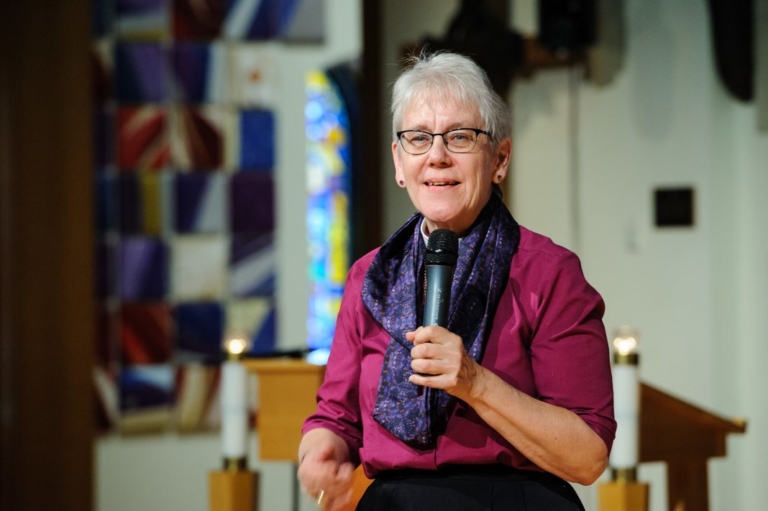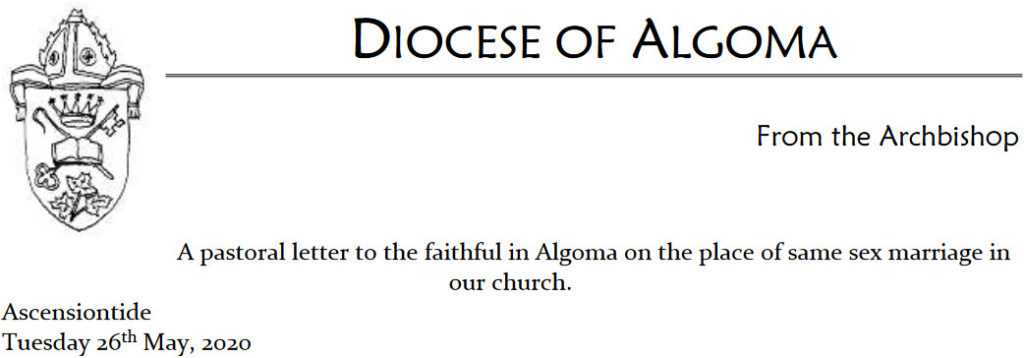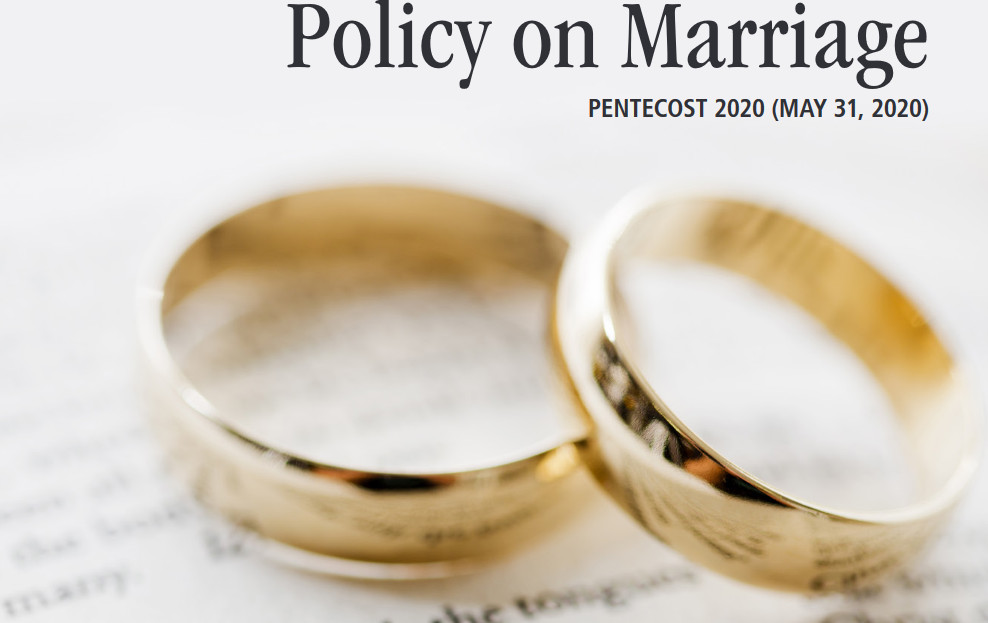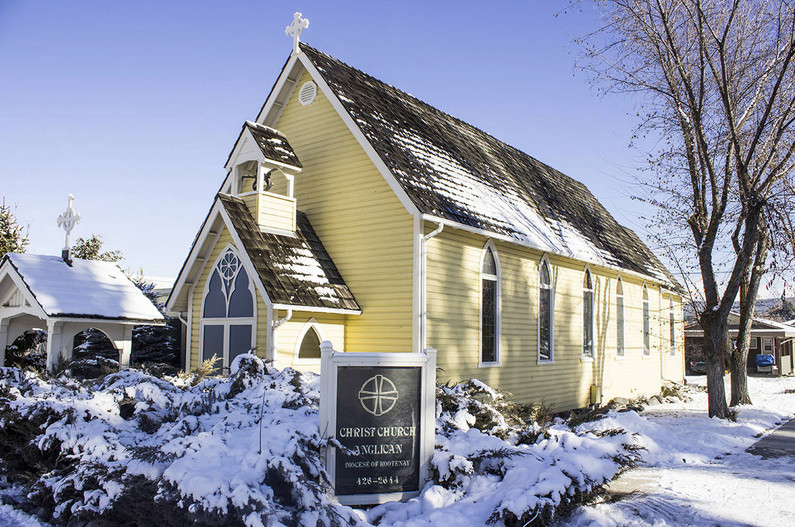The Anglican Church of Canada, having run out of its own seemingly inexhaustible supply of sophistry, is looking to the Roman Catholic Church for inspiration in finding new ingenious ways to justify blessing same-sex marriages.
The Roman Catholic Church has demonstrated its enviable talent for casuistry in recent statements on same-sex marriage.
A same-sex blessing is blessing the person not the relationship. The fact that the two people in the same-sex marriage are being blessed together is purely coincidental; it has nothing to do with the relationship. Nothing at all.
Why didn’t we Anglicans think of that?
From here:
A document released by the Roman Catholic Church reconsidering its policy on blessings—including those to people in same-sex relationships—offers Anglicans a new way to think about divisions within their own communion, says the Rev. Iain Luke, principal of the Saskatoon-based College of Emmanuel and St. Chad and a member of the Anglican-Roman Catholic Dialogue.
The declaration Fiducia Supplicans, endorsed by Pope Francis on Dec. 18, lays out a shift in the Roman Catholic Church’s approach to blessings. It encourages clergy to offer blessings from the church to any who ask without first scrutinizing whether they are in compliance with the church’s doctrines or meet some moral standard.
When someone asks for a blessing, the document says, regardless of their marital or moral status, they are showing their openness to God’s love and assistance. “This request should, in every way, be valued, accompanied, and received with gratitude,” it states. “People who come spontaneously to ask for a blessing show by this request their sincere openness to transcendence, the confidence of their hearts that they do not trust in their own strength alone, their need for God, and their desire to break out of the narrow confines of this world, enclosed in its limitations.”
Though the new policy does not allow Roman Catholic priests to bless same-sex relationships, it does allow them to bless the people in them, whose relationship status would previously have been grounds for a priest to deny a blessing, says Luke. He compares this approach to that of the early days of Christianity in the first century AD.



 FOR SOME TIME now several diocesan bishops within the Anglican Church of Canada have been allowing – and even sometimes personally performing – same-sex marriages and have authorized liturgies for such rites. They have based their right to do so on a Memo issued in June 2016 by Chancellor David Jones Q.C., the top legal advisor to the Primate.
FOR SOME TIME now several diocesan bishops within the Anglican Church of Canada have been allowing – and even sometimes personally performing – same-sex marriages and have authorized liturgies for such rites. They have based their right to do so on a Memo issued in June 2016 by Chancellor David Jones Q.C., the top legal advisor to the Primate. I have weighed the matter of same sex marriage in the church carefully and prayerfully, only too aware of the heavy burden that lies on me as the time arrives to make a decision for the Diocese of Algoma. I believe that the decision I have made is the result of my prayerful and attentive listening to Algoma’s corporate discernment over many years and reflects the position and desire of the majority of people in this diocese. I am,therefore,granting permission for duly qualified same sex couples who are part of ecclesial communities and who intend to live in faithful and committed relationships to celebrate the sacrament of marriage in our diocese.
I have weighed the matter of same sex marriage in the church carefully and prayerfully, only too aware of the heavy burden that lies on me as the time arrives to make a decision for the Diocese of Algoma. I believe that the decision I have made is the result of my prayerful and attentive listening to Algoma’s corporate discernment over many years and reflects the position and desire of the majority of people in this diocese. I am,therefore,granting permission for duly qualified same sex couples who are part of ecclesial communities and who intend to live in faithful and committed relationships to celebrate the sacrament of marriage in our diocese. The Diocese of Toronto has decided that same-sex marriage is both legitimate and not legitimate. In polite company, this is known as an antinomy. Or, in plain language, rubbish.
The Diocese of Toronto has decided that same-sex marriage is both legitimate and not legitimate. In polite company, this is known as an antinomy. Or, in plain language, rubbish. Christ Church Anglican in Cranbrook has officially received permission from Bishop of Kootenay Lynne McNaughton to perform same-gender marriages.
Christ Church Anglican in Cranbrook has officially received permission from Bishop of Kootenay Lynne McNaughton to perform same-gender marriages.
 From this sharing and listening, we will gather what we’ve heard into our diocese’s message for the Council of General
From this sharing and listening, we will gather what we’ve heard into our diocese’s message for the Council of General Susan Green and Brenda Halley chose the Anglican Cathedral of St. John The Baptist as their church 12 years ago, little realizing that they would be part of history.
Susan Green and Brenda Halley chose the Anglican Cathedral of St. John The Baptist as their church 12 years ago, little realizing that they would be part of history. Dear Friends,
Dear Friends,